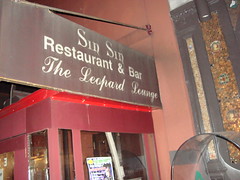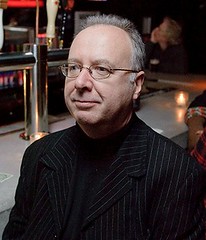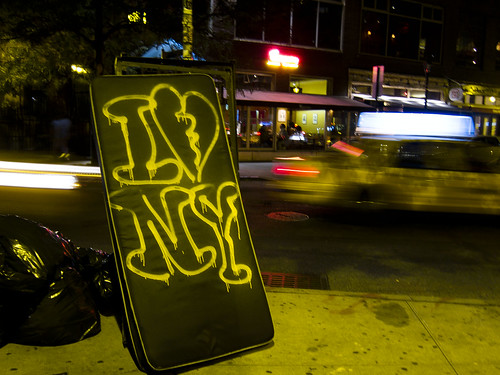 Timothy J. Stenovec The Sin Sin Lounge, where a clubgoer was fatally shot in August, will shutter its nightclub operations later this month and re-open as new type of venue.
Timothy J. Stenovec The Sin Sin Lounge, where a clubgoer was fatally shot in August, will shutter its nightclub operations later this month and re-open as new type of venue.The Sin Sin lounge is undergoing a major makeover.
The Local has confirmed reports that the lounge, the scene of a fatal shooting of a clubgoer in August, will close its doors at the end of the month to undergo renovations and re-open as a new type of venue with a different theme.
Sin Sin had become a focal point for neighborhood complaints about violence and noise at bars after the shooting death of Devin Thompson, who was 43, outside the club on Aug. 22. No arrests have been made in connection with Mr. Thompson’s death although the police want to question two men who were at the club the night that he was killed.
A post Tuesday on EV Grieve was one of the earliest indications that changes might be coming to the bar. Posts on other blogs offered similar reports.
Read more…
 Kim Davis.
Kim Davis.What legitimate expectations does the community have of bar and club-owners when it comes to noise? And just which community are we talking about? I wanted to remove my editorial hat for a moment and join this conversation from a personal perspective.
Of course we can have legitimate expectations when it comes to how the nightlife industry conducts itself. The owners should be held responsible for behavior inside bars and clubs, for the level of noise emanating from the premises, and for what happens right on their doorstep. In particular, they should be held accountable if they serve liquor to guests who are already intoxicated: illegal, of course, but a law hardly ever enforced.
They cannot, however, be held responsible for policing the streets of the East Village. It was the city, remember, who decided that smokers should congregate outside licensed premises, with the result that late-night conversations once held behind closed doors are now held on the sidewalk.
Beyond posting friendly reminders to keep the noise down, what can bar and club owners do? They have no authority to impose silence on the streets; they can’t control the behavior of customers who have left their premises; and they certainly can’t stop cabs sounding their horns.
But just who is being disturbed by late-night street life? I’ve lived between Avenues C and D for ten years, and my neighbors aren’t complaining about noise from clubs. They can’t hear it over the music they’re blasting themselves. What’s more, long-term residents of the blocks east of Avenue A are for the most part happy to see bright lights and nightlife replace the dark storefronts of the past. As the urbanist Jane Jacobs taught, empty, silent streets are hospitable to criminality.
Is it noise that’s really what bothers some segments of the community? Or is it change? Is it the sense that the people making the noise (visitors to the neighborhood, students) don’t really belong? Is this supposed issue really a peg on which to hang prejudices and a sort of inverted snobbery: keep out of my East Village – you’re not welcome?
Kim Davis is the community editor of The Local East Village.
 Dan Nguyen
Dan NguyenEarlier this week, we wrote about a meeting of the state liquor authority committee of Community Board 3, where neighborhood residents successfully opposed the granting of a liquor license to a diner on Avenue A. One reader, Josef, commented in the forums:
Who are these people? Obviously they do not deserve to live in such a cool neighborhood. There are thousands and thousands of people who would love to move to the East Village and revel in its bars, restaurants, noise, traffic, and graffiti. Instead, the best hood for partying in the city winds up populated by shrinking violets with sensitive eardrums and early bedtimes.
Later in the week, we posted a story about the Ninth Precinct Community Council Meeting where at least 25 people showed up to voice their complaints about noise and fighting outside East Village bars.
As the weekend approaches – with Oktoberfest celebrations and other events planned – we’d like to know what you think.
Are complaints about noisy bars and congested streets overblown?
Or do residents have a legitimate expectation that business owners control the riff-raff?
Let us know.
 Timothy J. Stenovec The Sin Sin Lounge, where a clubgoer was fatally shot in August, will shutter its nightclub operations later this month and re-open as new type of venue.
Timothy J. Stenovec The Sin Sin Lounge, where a clubgoer was fatally shot in August, will shutter its nightclub operations later this month and re-open as new type of venue.




